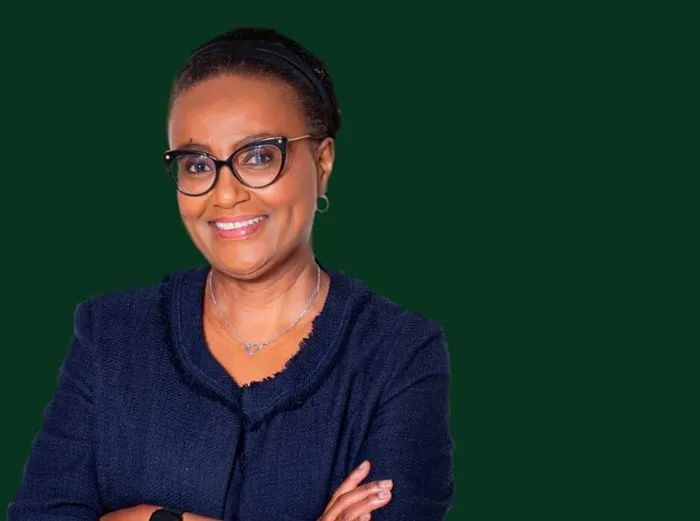South Africa's Tshabalala is running in line up for Africa's next 'super banker'

Bajabulile Tshabalala
Image: Social Media
Five candidates are in the running to succeed Nigeria's Akinwumi Adesina as president of the African Development Bank (AfDB).
They are:
Bajabulile Swazi Tshabalala (South Africa)
The AfDB has only ever been headed by men but Tshabalala aims to change that.
The 58-year-old South African was until the end of last year a vice president at the bank and could emerge as a continuity candidate.
"Africa is at an inflection point. It's time for bold leadership that turns vision into action. I'm ready to lead the AfDB towards a more integrated, resilient, and prosperous continent," she said last month.
Tshabalala wants to accelerate infrastructure development, boost private sector growth and make the AfDB more efficient.
She argues that the bank must look beyond public funding to "smart finance".
South Africa backs her candidacy but southern African unity could be split, as it had previously rallied behind Zambia's Maimbo.
Amadou Hott (Senegal)
Hott was Senegal's economy minister from 2019 to 2022 under the presidency of Macky Sall and until September last year was Adesina's special envoy for green infrastructure in Africa.
But he is not necessarily a natural successor, as the position usually goes to a candidate from another region and the candidacy of Mauritania's Sidi Ould Tah will split the west African vote.
In his pitch for the leadership, Hott, 52, has called for "a more inclusive, integrated and resilient Africa", positioning himself in particular as a supporter of AfCFTA, the African Continental Free Trade Area.
He is also in favour of deepening relations with the private sector.
Hott also wants to quicken the pace of investment in sustainable energy infrastructure using Africa's vast renewable resources.
Samuel Munzele Maimbo (Zambia)
Maimbo, 52, was most recently vice president for budget, performance review and strategic planning at the World Bank.
He has also been chief of staff to World Bank presidents David Malpass and Ajay Banga.
He will also have to contend with a split regional vote during the election, as South Africa -- one of the biggest AfDB's contributors -- is also fielding a candidate.
But his experience at the World Bank could help him secure US support, which carries weight in the vote.
Maimbo, who highlights 30 years of experience in development and finance, wants the AfDB to play "a leadership role" in supporting the many countries strangled by debt.
Having grown up on a farm on the outskirts of Lusaka, he emphasises the importance of agricultural mechanisation and the development of the agro-industry.
"Africa needs significantly higher rates of growth to successfully navigate today's development challenges and capture tomorrow's opportunities," he said in his mission statement.
Sidi Ould Tah (Mauritania)
Tah, who has headed the Arab Bank for Economic Development (BADEA) for 10 years, was the last candidate to declare.
Several north African Arab states are members of the AfDB and if elected, his experience at BADEA could be a bridge with sub-Saharan Africa.
He said in his mission statement that he had transformed BADEA into "one of the best capitalised and most highly-rated DFIs" (development finance institutions).
He has vowed to strengthen regional financial institutions, assert Africa's financial independence on global markets, use population growth as a development lever and build climate change-resistent infrastructure.
Tah, 60, is a former economy minister in Mauritania.
Abbas Mahamat Tolli (Chad)
Central Africa has never had a president of the AfDB but Tolli, a 53-year-old Chadian, could be its first.
The former governor of the Bank of Central African States has served as a finance and infrastructure minister and is also proposing a transformative vision.
He wants to achieve food sovereignty through sustainable agricultural investments, speed up financing for essential infrastructure, improve governance, promote renewable energies, and develop domestic financial markets.
To achieve this, the AfDB, he said, must strengthen its support for agricultural productivity, further mobilise the private sector, and help states better fight tax evasion, among other measures.
Success will mean the emergence of robust and competitive industrial value chains, he said.
AFP